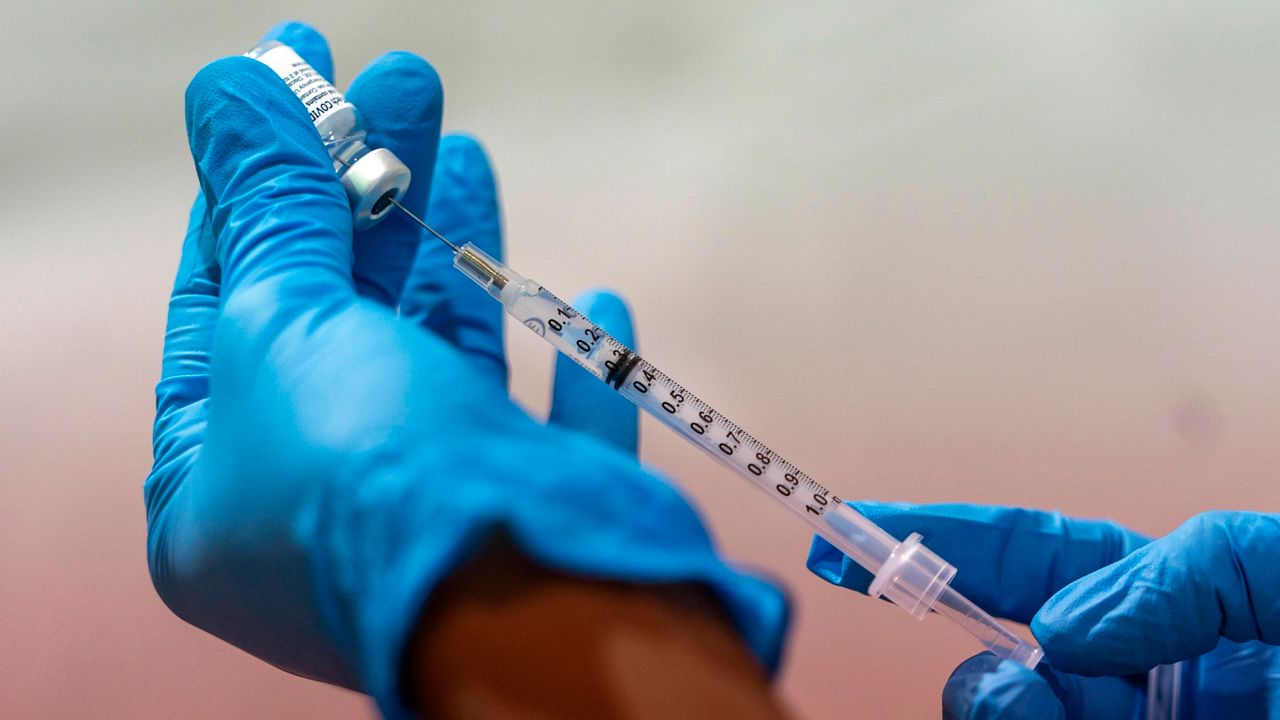Executives from the major COVID-19 vaccine producers – Pfizer, Moderna, Johnson & Johnson, AstraZeneca, and Novavax – answered questions Tuesday from the House Energy and Commerce Committee panel about expanding the supply of shots needed to curb the pandemic that has killed more than 500,000 Americans.
The hearing came as U.S. vaccinations continue to accelerate after a sluggish start and recent disruptions caused by winter weather. But state health officials say demand for inoculations still vastly outstrips the limited weekly shipments provided by the federal government.
"The most pressing challenge now is the lack of supply of vaccine doses," Rep. Diana DeGette (D-CO) said as she opened the hearing. "Some of the companies here today are still short of the number of doses they promised to initially deliver when they last testified before this subcommittee in July."
The vaccine makers told lawmakers to expect a big jump in the delivery of doses over the coming month, and the companies insist they will be able to provide enough for most Americans to get inoculated by summer.
By the end of March, Pfizer and Moderna expect to have provided the U.S. government with a total of 220 million vaccine doses, up sharply from the roughly 75 million shipped so far.
“We do believe we’re on track,” Moderna President Stephen Hoge said, outlining ways the company has ramped up production. “We think we’re at a very good spot.”
Looking ahead to summer, Pfizer and Moderna expect to complete delivery of 300 million doses each. Two other manufacturers, Novavax and AstraZeneca, have vaccines in the pipeline and anticipate eventually adding to those totals.
Asked pointedly if they face shortages of raw materials, equipment or funding that would throw off those schedules, all of the manufacturers expressed confidence that they had enough supplies and had already addressed some of the early bottlenecks in production.
“At this point I can confirm we are not seeing any shortages of raw materials,” said Pfizer’s John Young.
More than 75 million doses of the two-shot-regimen vaccines from Pfizer and Moderna have already been distributed to states, with nearly 14% of Americans receiving at least an initial dose. Pfizer expects to be shipping more than 13 million doses a week by the middle of March.
New Brunswick, N.J.-based Johnson & Johnson revealed in its testimony that it will be able to supply 20 million U.S. doses of its single-shot COVID-19 vaccine by the end of March, assuming it gets the green light from federal regulators. The company has promised to supply 100 million doses to the U.S. government by the end of June.
The company had previously released few details on its initial supplies, though White House officials cautioned last week that they would be limited.
Rep. Frank Pallone, a New Jersey Democrat, questioned J&J Vice President Richard Nettles on why the company has fallen behind on the schedule outlined in its federal contract, which included delivering 12 million doses by late February.
Nettles said only that the company has faced “significant challenges” due to its “highly complex” manufacturing process. But he noted the company is partnering with drugmaker Sanofi to further expand production.
“This has been an unprecedented effort to scale up manufacturing for a vaccine against a disease that didn’t even exist more than a year ago,” Nettles told lawmakers.
The Food and Drug Administration is expected to grant emergency approval for J&J’s vaccine as soon as this weekend, providing the first one-shot option to protect against the virus.
Despite current constraints, federal health officials say the U.S. is on the cusp of a supply breakthrough, with a total of 700 million doses slated for delivery by late July. That would be enough to deliver on the government’s goal to provide enough shots for every American adult.
Even with no manufacturing or supply interruptions, other issues could delay or block the U.S. from vaccinating 70% to 80% of its population – the critical threshold needed to neutralize COVID-19 spread.
About 1 in 3 Americans say they definitely or probably will not get the vaccine, according to a recent poll from The Associated Press-NORC Center for Public Affairs Research. Concerns about safety were the reason most frequently cited for vaccine hesitancy, despite few serious side effects reported with the currently available vaccines.
The Associated Press contributed to this report.



